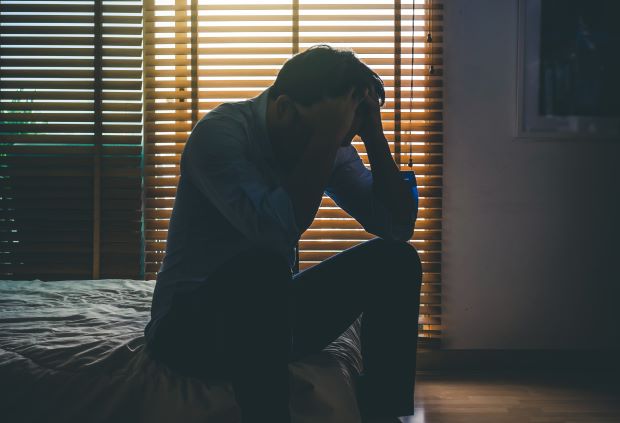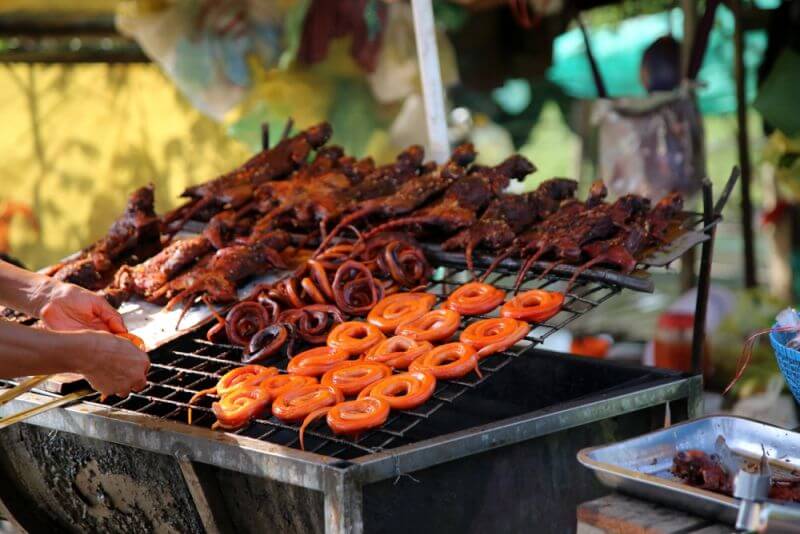As preppers, we can easily get caught up in the mechanics of survival. We spend hours selecting the perfect water purification system, days choosing the right gear for our bug out bags, and weeks deciding what food to stockpile. Our various projects to turn out homes into a survival sanctuary can span years, as we keep adding more and more, converting our home into an urban homestead. Prepping is a project that’s never truly complete.
A lot of that is that we keep finding new things we need to do. When we start out as preppers, we’re usually just thinking about stockpiling food. It doesn’t take long for us to realize we’re going to need water to go with that, so we start a water stockpile too. But stockpiling enough water for our survival is almost impossible, leading us to our first piece of true survival gear, a water purification system. It just grows from there; and the more time we spend on prepping websites, the more things we realize we need to buy and to do, in order to be truly prepared.
But while all of this is good and necessary, it’s leaving out one extremely important area… ourselves. We’re preparing everything we need to have in order to survive; but are we preparing ourselves to survive as well?
Part of that preparation is training; something that we talk about fairly extensively. There are a lot of important survival skills that we can learn. So many in fact, that we could spend our lifetime studying them, without ever finishing. The more we get into studying useful survival skills, the more skills we discover to study. Some of those are direct survival skills; but others are things which affect our ability to survive in a more civilized manner, in a world that has been kicked back to the 1800s, before our ancestors had electricity and gasoline engines.
The Missing Ingredient
But there’s another part, which is just as important. That’s preparing ourselves mentally for the very act of survival. Of all the various things we need to bring together, in order to survive, the single most important is our attitude. If we don’t have an attitude for survival, then all our preparation might be for naught.
Attitude is such an important part of survival, that every military manual on survival I’ve found, across all the branches of the military, starts with a chapter talking about survival. Putting it simply, those who don’t have an attitude for survival just aren’t going to make it, while those who do, greatly increase their chances of surviving, no matter how bad the odds are against them.
Medical science backs this up, through the experience that doctors have had with their patients, especially patients who were at risk of dying, such as gunshot victims and those with serious cases of cancer. In countless cases, whether or not the patients survived had more to do with their attitude, than it did with what the doctors did. The phenomenon is so prevalent, that medical studies have been conducted, based on real cases, to verify that it is true.
The Attitude to Survive
So, just what is this attitude for survival? It’s really nothing more than the conviction that one is going to survive. I realize that sounds overly simplistic; but it’s the truth. Those who are convinced they will survive are much more likely to fight to survive, doing what they need to do, to ensure their survival. On the other hand, those who are not convinced that they will survive are likely to give up when things get difficult, not doing things that they are capable of doing, ensuring their own demise.
It goes even further than this. Doctors have noticed that if someone is convinced they’ll die, chances are they will. Gunshot victims, specifically law enforcement officers who have been wounded by gunshot in the line of duty, will usually die if they expect to die, even if their wounds are not life-threatening. On the other hand, if they are convinced they will live, they often will, even if the technical odds of their survival are low.
Both types of people are easy to recognize. Those who have the will to live are likely to be positive, seeing the good side of things, while those who don’t have that innate attitude tend to be negative, even fearful. This permeates everything in their lives.
>>> GET THE BOOK TO DISCOVER MORE <<<
I have lived around people who were fearful, afraid of everything. You might think that those people couldn’t possibly be preppers; but there are at least some of them. They don’t prepare out of a positive attitude of accepting the responsibility of taking care of themselves and their families, they prepare out of fear. They are afraid to die. But that same fear all but paralyzes them, keeping them from prepping effectively. There’s a tendency to focus on one thing that isn’t done; and as long as they focus on that, they won’t do other things that they can do to help ensure their own survival.
This carries even further, through times of crisis. Rather than applying themselves to doing those things that are necessary to survive, they are so crippled by their fear, that they aren’t motivated to doing those things. They might be willing to do the easy things; but when it comes to the hard things that are necessary, they won’t have the necessary motivation. They’ll hope that someone else does them, even to the point of pretending they don’t realize that those things need to be done.
Developing a Survival Mindset
While some people may be born with the right mentality to survive, not all are. That doesn’t mean that those people are consigned to a life of failure, leading to their ultimate death when a disaster strike. A survival mindset is something that can be learned or developed. So, how do we do that?
Work on Being Positive
If we accept that a survival mindset is a positive one, rather than a negative one, then one of the most important parts of developing a survival mindset is becoming positive, rather than negative. This is actually harder than it may seem, because we live in a negative world. Much around us is expressed in negative terms, rather than positive ones. This is most obvious in politics, but it can even be found in such things as traffic lights. Why do we have to call it a “red light” or “stop light,” when it spends just as much time green, as a “go light” as it does red?
It is much easier to start seeing things positively and expressing yourself positively if you’re working on this with someone else. That way, you can catch each other in your negative statements, which is much easier than catching yourself. Of course, how you catch each other is important, as you don’t want to start a fight. So, rather than blatantly telling each other “You’re wrong,” come up with a humorous phrase that you can use, such as “Oh, another purple pickle, I see.” That gets the message across in a much lighter, more humorous way, assuming you both know what it means.
Train Yourself
Another thing that can make a huge difference in your survival attitude is your self-confidence. It’s much easier to be positive about your potential survival, if you’re convinced you know what you need to do, in order to survive. That’s a natural outcome from the self-confidence that skill brings.
As preppers, one of the things we all supposedly do is to work on learning necessary survival skills. Just how far we take that varies from person to person; but we all supposedly put effort into learning at least the basic survival skills. That means we know what to do, when everything goes wrong. That knowledge makes it easier to be positive about our chances of survival, when things go wrong.
But what if we learn more skills; does that make a difference? Yes, it does. The more applicable skills we have, the more confidence we will have. Even skills that we don’t immediately use to ensure our survival will matter, because we will know that we have those skills to fall back on. We will look at the various problems associated with survival, and apply the knowledge we have, taking ideas from one area of survival and applying them to others, as needed.
So, the more we can learn, the greater our chance of survival. That’s actually a double benefit, because we gain the benefit of being able to use those skills and we gain the benefit of greater self-confidence, helping us to be positive in the face of whatever we are facing. We may be shocked by the situation, at first, just like anyone else; but it won’t take us long to set that shock aside and apply ourselves to overcoming the situation.
The funny thing is that every victory we have in survival will help improve our survival attitude; our confidence that we’ll survive. I’m not talking about being cocky here; I’m talking about true confidence; confidence with a foundation. In turn, that confidence is likely to be just what we need to tackle the hard problems and ensure our survival.
























































































Think –
There’s a powerful tendency for people to not take action, or often worse, inappropriate action in an extreme or perceived extreme circumstance.
There’s a balance between quick action and thinking.
A lot of quick and well thought out decisions can be accelerated by having thought of them in advance, so that certainly helps.
Thinking is such an important aspect of survival that I add it as first to The Rules of Three: “You can live three seconds without thinking!”
My first thought is how long do I have to think about a dire circumstance which is best illustrated by examples.
One incidence entailed an imminent automotive collision fifty feet in front of me. That’s a half second to think!
Fortunately, I’ve already decided many times over the years and practiced extreme driving techniques both off-roading and on the race track to know the capabilities of my vehicle and to match that with developing my capabilities which both specifically and in general are preparedness skills.
Instantly, I evaluated and decided not to use the brakes as most would and it’s all in the handling. Skipping ahead, I did a very high risk maneuver with confidence and there was no collision nor even contact.
Contrast that to another dire circumstance of a vehicle being stuck in wilderness. My evaluation of my time to think about it was it was not time sensitive and I could take plenty of time to think. My friend panicked and wanted to dig with hands and gather rocks and sticks as if there is no time to think. We compromised. I said I’ll spend only five minutes maximum thinking and that doesn’t change anything and IF I don’t have a better plan, then we do what you say. Skipping to the end, I figured out how to make a quick modification and drive off without doing all that work.
Can people really die by not thinking for three seconds? It happens mostly everytime a driver drifts across the painted stripe down the road! That so many don’t do that is a testament that even bad drivers think not to cross that line.